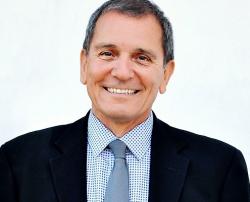High-Performance Practice: The All-Important Traits of Resiliency
Being a Better Soccer Player: High-Performance Practice is a new series from Jim Madrid.
Cognitive Dissonance is the state of having inconsistent thoughts, beliefs, or attitudes, especially as relating to behavioral decisions and attitude change. You want to be a star soccer player but, when you are at practice, you don’t really think your dream could ever come true, so you don’t try your best.

The tension caused by trying to hold two different ideas about reality in the mind at the same time — this can kill your dreams.
Or at the very least make them more difficult to achieve.
When it comes to adversity, it’s important to understand that it is not so much what’s actually happening in reality, but rather the difference between our expectations and reality that gives us so much grief.
Cognitive dissonance is the culprit.

The question becomes, can you handle the dissonance?
You also might want to read: BEING A BETTER SOCCER PLAYER: MAKING YOUR GOALS REAL
When facing adversity, it is the difference between our expectations and reality that causes anxiety and stress.
Often, we have a strong expectation or belief that adversity, pain, and suffering are to be avoided at all costs. We believe that these things are extremely bad for us.
They don’t fit into our picture of what it takes to succeed and be happy, so we don’t want to admit that they are an inevitable part of life, and we secretly fear them.
Your Expectations about Adversity:
- Do you believe that obstacles and setbacks are part of life?
- Do you think they shouldn’t happen and must be avoided at all costs?
But obstacles, setbacks, and the unpleasant feelings that often go with them are nothing to be afraid of.
Setbacks are a normal, natural part of life. It’s better to acknowledge than to deny them.

I’ve never been comfortable with the idea that if you can only get good enough at positive thinking, you’ll be able to avoid problems and heartache in your life.
It just isn’t true. In fact, I’m willing to bet that most of us look back on the troubles we got through and the obstacles we stood up to and see them as things that have taught us valuable lessons.
Think about it. How can you learn to be a good problem-solver if you never have any problems?
How can you develop strength of character if you never have to struggle with difficulties?
How can you feel compassion if you’ve never known what it’s like to feel pain? And how can you fully appreciate the satisfaction of success if you’ve never known frustration or failure?
Someone once said God never sends us problems that we can’t learn to handle. If you want to say “Fate” instead of God, go ahead, but the point I’m making is the same.
Here is a list of the Top Ten qualities that accurately describe a resilient person:
- Strong Self-Esteem
First and foremost, resilient people have a strong sense of self-esteem.
Strong self-esteem is the foundation for building a happy, successful life, and it’s also the foundation of resiliency. Self-esteem is the efficacy of oneself to deal with life’s everyday challenges and being worthy of happiness. As a coach or a player, the level of self-esteem has a direct correlation with confidence in self.
- Independent Thinkers
Resilient people are independent thinkers.
While they may ask for advice and counsel from time to time, they decide for themselves what the best course of action is. When they have to rely on other people for a while, it doesn’t bother them. They’re not reluctant to ask for help. They don’t think it makes them look weak or incompetent. On the contrary. They know that no one makes it on his or her own.
- Good support network
Resilient people have family, friends, and colleagues they can count on, including one or more people to whom they can bare their souls.
This is very important. Many studies have shown that people who have a close, dependable, supportive circle of friends and family recover more quickly when they have to deal with setbacks and adjust more quickly to major change. And together we are stronger than any one of us can be alone. It just makes sense, doesn’t it? United we stand. Divided we fall.
- Self-Disciplined & Accountable
When resilient people make a promise to themselves, they keep it.
They do what they say they’re going to do, and when they make a plan, they stick to it unless they can come up with a better one.
- Recognize & Develop Talents
Resilient people know what their strengths are and what they’re good at, and they challenge themselves to keep getting better. They know where their weaknesses are, but they focus on and play to their strengths.
- Open-Minded
Resilient people are receptive to new ideas.
This is critical. No one can get through rapidly changing times wearing blinders. You have to not only be ready, willing and able but also eager to learn new ways, better ways, more effective ways of doing what you do.
- Quick to Laugh
Resilient people have a good sense of humor. They laugh at themselves, and they help other people to laugh. We don’t pay our best comedians big bucks for nothing. Laughter helps us relax, feel good, and look on the bright side.
- Insightful
Another quality that resilient people share is an insight into their own feelings and those of other people. They are in touch with their emotions and are able to communicate them in an appropriate manner. They are also able to listen with empathy when others want to share feelings.
- High Tolerance for Discomfort
Resilient people are also able to tolerate a considerable amount of distress.
They don’t necessarily like it, but they can handle it. This ability to tolerate discomfort and even pain is important because it means that they don’t start looking around for the nearest exit when things get tough. They don’t panic. They don’t run. They know that the discomfort won’t last forever, so instead of escaping or exploding, they tough it out and think it through.
- Hopeful
Finally, resilient people are hopeful.
We talk a lot about optimism in our seminars and workshops, and optimism is a special kind of hopefulness. You see, people who are resilient have just as many bad things happen to them as anyone else. They go through just as many tragedies and have just as much misfortune.
But they control their self-talk and choose to interpret their experiences in a way that offers meaning and hope.
Jim Madrid is the Founder of AST, a California-based Human Performance firm. Jim is an accomplished consultant, speaker, and author and has developed a nationally recognized performance coaching and player development program.
 Jim Madrid and AST work with professional, collegiate and youth sports. Elite athletes from professional soccer, basketball, baseball, and football have greatly benefitted from the AST curriculum and concepts.
Jim Madrid and AST work with professional, collegiate and youth sports. Elite athletes from professional soccer, basketball, baseball, and football have greatly benefitted from the AST curriculum and concepts.
It’s not clinical, it’s practical.
As an expert in human behavior, Jim and his locker room of expert coaches are sought-after advisors to coaches and players wishing to optimize their performance. The information presented is research-driven and based on cognitive and neuropsychology, illustrating to each participant how to ‘retrain your brain’ to create and lead an Extra-Ordinary Life.






